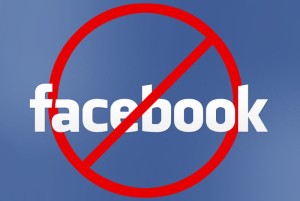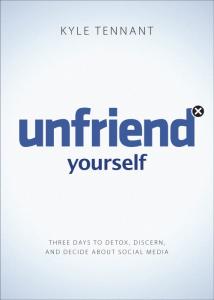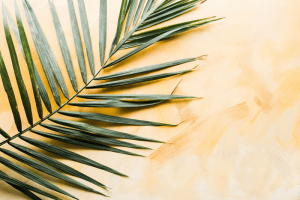What I Learned From My Facebook Fast 2015
I recently took a fast from Facebook for forty days during Lent. I did this for two reasons. First, I wanted to spend more time in prayer for our church’s upcoming revival. Second, I felt that flipping through Facebook (mostly on my phone) was preventing me from doing some other important work. So I decided to fast during Lent from Facebook. Here are five things I learned from this experience:
1. Social media can really be a distraction from more important things like people.
There were times in which I would spend looking on my phone instead of paying attention to people. I realized that during this fast. Social media can be a great tool to communicate what is going on in my life. However, I discovered that spending time looking at other people on Facebook was preventing me from paying attention to people around me in person. I don’t think that constantly looking on my phone at other people’s activity is worth it in the end.
2. Social media is still a primary way some people communicate.
There were times in which people tried to contact me and I never knew it. Since I deleted the Facebook and Facebook Messenger apps on my iPhone, iPad, and Mac, I didn’t know that someone was trying to contact me. I know that people still have phone numbers because they still have smartphones. But because they tried to contact me on Facebook Messenger, I never knew it. I also realized that at some point, Facebook will try to make it possible to contact people using their system even if you don’t have their apps. Facebook probably saw the communication gap I experienced, and will try to fill the gap.
3. The world will go on, even if you don’t use Facebook.
Here is what I missed: funny memes, lots of cat videos, inspirational quotes, personal rants, and pictures of people’s experiences. Looking back on my Facebook stream, it seems that people didn’t miss me much either. My stream showed pictures in which I was tagged, book and movie reviews and sermons, and an occasional comment. Life went on, even when I wasn’t on Facebook. This brings me to my next point.
4. Facebook is an exclusive, not inclusive community.
If you are not on Facebook, you miss stuff. It might be junk, it might be good, but you would not know it if you weren’t on it. People in real life would tell things that they assumed I knew because they were referring to an event or comment from Facebook. Because I had not been reading my Facebook stream, I didn’t know what they were talking about. Facebook prides itself on being a community. But it is hardly an inclusive one. You have to be “in the know” to know what is going on. Facebook won’t tell people who are not on Facebook what is going on in their Facebook “communities.” I get regular updates from Twitter, Google +, LinkedIn, Pinterest, and Tumblr. I can’t say the same for Facebook. Facebook doesn’t give you daily or weekly updates by email. They don’t want to tell you what is going on outside of its world. Instead, Facebook wants you to be in its world. To me, this revealed a very important insight into church community life. To many people, we may seem exclusive. They don’t get what we are talking about and they may feel like outsiders. We have to break out of our “world” to reach others.
5. Using social media is a privilege, not a right.
I really enjoyed my break from Facebook. At the same time, I was glad to be back online. But like expensive rich food, I think I will use it in moderation from now on. I noticed that some people seem to write posts as if they were addicted to social media. They would speak to others on Facebook like they were a real community. Perhaps I am wrong about this. I realize that Facebook is a great tool to use to reach out to people from all over the world. I know people who live in Germany, Brazil, Mexico, Russia, as well as other countries. I have friends from Texas, Missouri, Arkansas, Oklahoma, and other parts of the United States. But it requires an Internet connection to use social media. When I can’t be online, I can’t use social media. Being too dependent on social media for my needs of community may not be the best idea. It can rob me from the real people in my life.
So I will continue to use Facebook as a communication tool, but after this experience, I have learned to be less attached to it.













